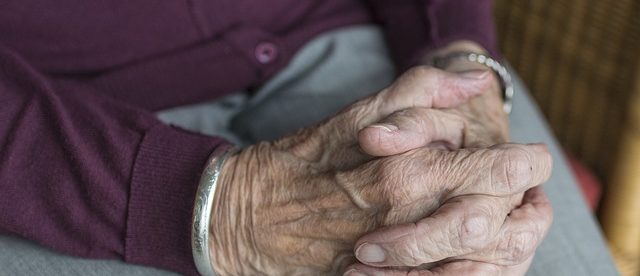Reconnecting with a Senior Parent Who is Recovering from Addiction
Written by Teresa
Holidays are supposed to be times of happiness and celebration. They provide you with the opportunity to gather with loved ones and share good food and good company. Many people have happy childhood memories of celebrating the holidays with their parents and siblings. But if you are the adult child of an addict, there’s a good chance you have no wonderful holiday memories. In fact, you probably don’t have many joyous memories of your childhood.
After all, children of addicts are accustomed to uncertainty and fear. They remember countless times when an addict missed their basketball games or ballet recitals. Other childhood memories involve parents passed out on the living room couch, empty beer bottles littered on the floor. At times, there was no food in the house, and the bills didn’t get paid. Or maybe their memories involve embarrassing public situations when an addicted parent caused a scene at school. But those sad memories never go away. They haunt people into adulthood. That’s why many children of addicts are reluctant to reconnect with parents–even parents that are recovering addicts.
If you are the adult child of a recovering addict, you may feel that connecting with the parent during the holiday season is just setting yourself up for more pain and disappointment. Here are some tips to help you mend fences with your parent and find a pathway toward forgiveness.
Why Seniors Become Addicted
Some seniors have been addicts ever since they were teenagers, but others developed into addicts when they became senior citizens. Many may wonder why an elderly person would fall into drug or alcohol addiction. When you think about it, drug addiction among the senior population doesn’t seem that strange. Elderly people can become depressed because of drastic changes in their lives. They may lose a spouse or close friends to death. As a result, they suffer from loneliness. To cope with the sadness, they turn to drugs and alcohol.
As we age, we develop more aches and pains. We may suffer from age-related diseases that make it difficult to get around easily. If our judgment is impaired, we may not be able to drive anymore. These factors contribute to a sense of hopelessness and despair. In order to deal with these problems, an elderly person begins to abuse drugs and alcohol. Some may abuse prescription drugs. Others will drink too many alcoholic beverages to self medicate.
Understanding the reasons why a senior becomes an addict can make you more receptive to repairing a relationship with the addict. And even though it will be difficult, reaching out to a parent who is a recovering addict can help heal the wounds of the past.
If you decide to repair the relationship with your parent during the holidays, take time to have several discussions with the parent about the past. Honest conversations about those difficult times can help you learn to move past the bitterness and sadness you’ve harbored for so many years.
Realize that addiction is a disease. It changes the brain’s structure and the way it works. Diabetes damages the pancreas and heart disease harms the cardiovascular system. Similarly, addiction takes over the brain. When you accept that addiction is a disease, it makes it somewhat easier to forgive your parents for all the mistakes they made while under the influence of drugs and alcohol.
When a parent who’s a recovering addict reaches out to you, your first impulse may be to hang up the phone or slam the door in her face. Holidays are stressful enough without adding an estranged parent to the mix. But repairing a relationship with a parent is an excellent way to face the traumatic experiences of your childhood. By accepting the fact that addiction is a disease and opening lines of communication with your parent, you will take steps toward mending fences and rebuilding a good relationship with parents who are recovering addicts.
About the Author: Teresa is the co-creator of MentalHealthForSeniors.com, which is dedicated to providing seniors with information on physical and mental fitness so that they can be active and happy in their golden years.

